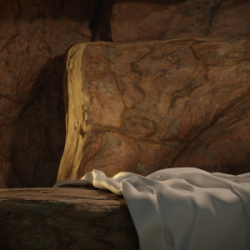In direct contrast to the moral relativism, utilitarianism, collectivism, and authoritarianism of the "progressives," the profound lessons from Lewis's extensive writings pertaining to liberty are absolutely clear and of the upmost importance to every modern man and woman:
It is in Man's power to treat himself as a mere "natural object" and his judgments of value as raw material for scientific manipulation to alter at will. . . . The real objection is that if man chooses to treat himself as raw material, raw material he will be: not raw material to be manipulated, as he fondly imagined, by himself, but by mere appetite, that is, mere Nature, in the person of his de-humanized Conditioners. . . . Either we are rational spirit obliged for ever to obey the absolute values of the Tao [natural law], or else we are mere nature to be kneaded and cut into new shapes for the pleasures of masters who must, by hypothesis, have no motive but their own "natural" impulses. Only the Tao provides a common human law of action which can over-arch rulers and ruled alike. A dogmatic belief in objective value is necessary to the very idea of a rule which is not tyranny or an obedience which is not slavery. . . . The process which, if not checked, will abolish Man goes on apace among Communists and Democrats no less than among Fascists. The methods may (at first) differ in brutality. But many a mild-eyed scientist in pince-nez, many a popular dramatist, many an amateur philosopher in our midst, means in the long run just the same as the Nazi rulers of Germany (The Abolition of Man, pp. 72-74).
In Lewis's book series The Chronicles of Narnia, the land of Narnia is held in place by the sacred Deep Magic (or natural law), and to transgress this moral code is to do evil. Toward the end of the first book in the series, The Lion, the Witch and The Wardrobe (which was made into the highly successful 2005 film), the children Peter, Susan, Edmund, and Lucy assume their rightful thrones as kings and queens of Narnia. Lewis describes how they govern during the Golden Age of Narnia and their most important accomplishments (p. 183, emphasis added): "And they made good laws and kept the peace and saved good trees from being cut down and liberated young dwarfs and young satyrs from being sent to school and generally stopped busybodies and interferers and encouraged ordinary people who wanted to live and let live."
Bibliography
Bean, Jonathan, ed. Race and Liberty in America: The Essential Reader. Lexington, KY: University Press of Kentucky for The Independent Institute, 2009.
Berman, Harold J. Law and Revolution: The Formation of the Western Legal Tradition. Cambridge, Mass.: Harvard University Press, 1983.
Byock, Jesse L. Medieval Iceland: Society, Sagas, and Power (Berkeley, Calif.: University of California Press, 1988.
Ekirch, Arthur A., Jr. The Civilian and the Military: A History of the American Antimilitarist Tradition. Oakland, Calif.: The Independent Institute, 2010.
---. The Decline of American Liberalism. Oakland, Calif.: The Independent Institute, 2009.
Elster, Jon. Nuts and Bolts for the Social Sciences. Cambridge, U.K.: Cambridge University Press, 1989.
Friedman, David. "Private Creation and Enforcement of Law: A Historical Case," Journal of Legal Studies 8, no. 2 (1979): 399-415.
Higgs, Robert. Crisis and Leviathan: Critical Episodes in the Growth of American Government. New York: Oxford University Press, 1987.




